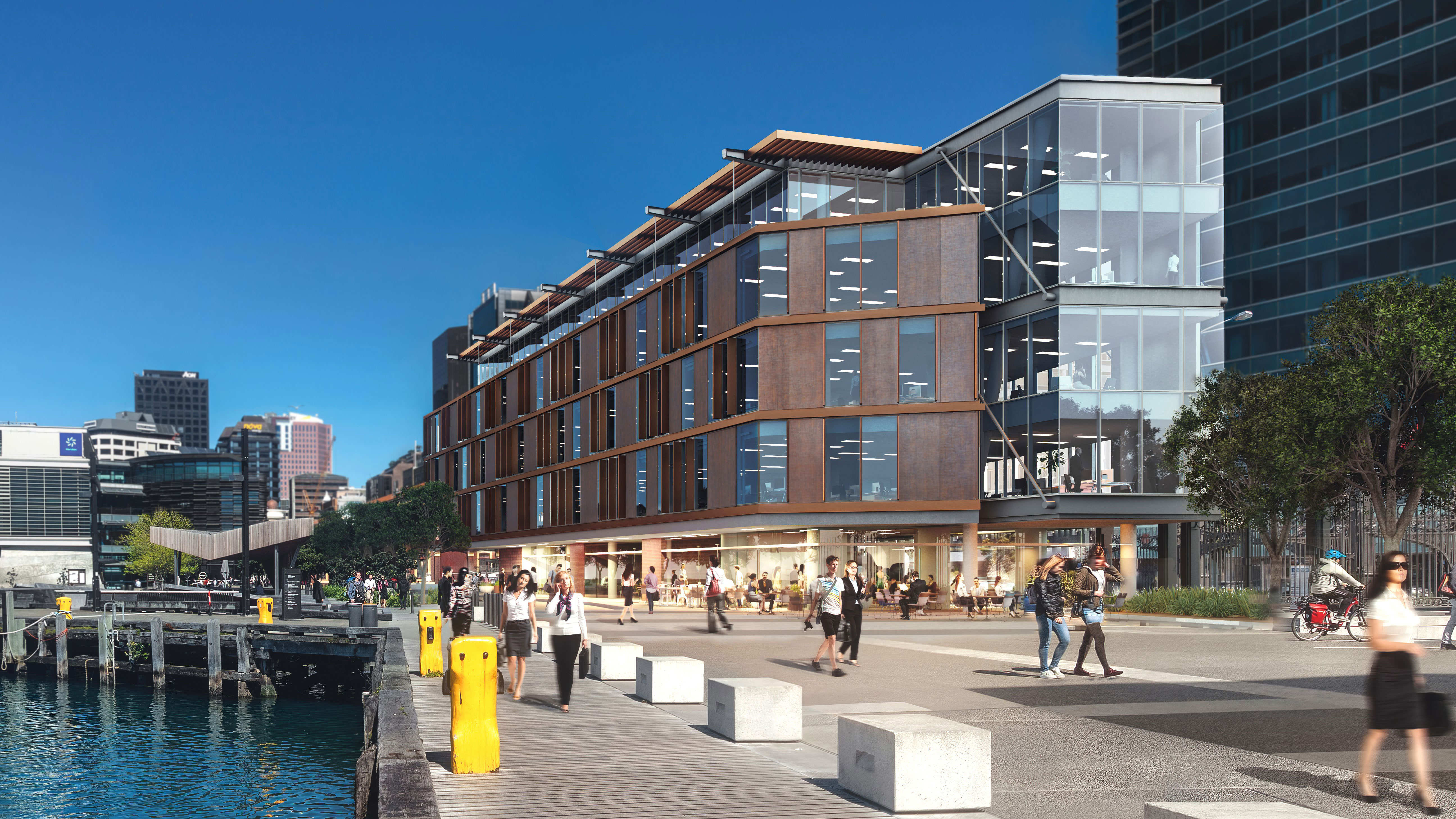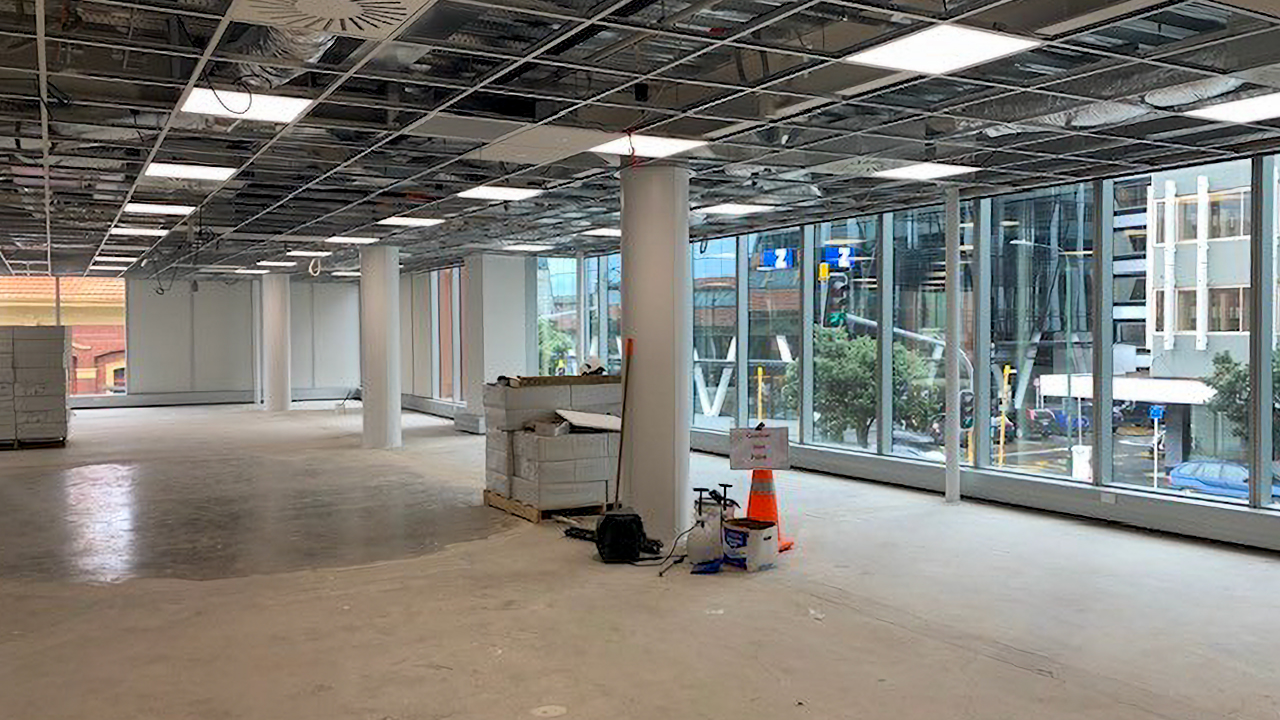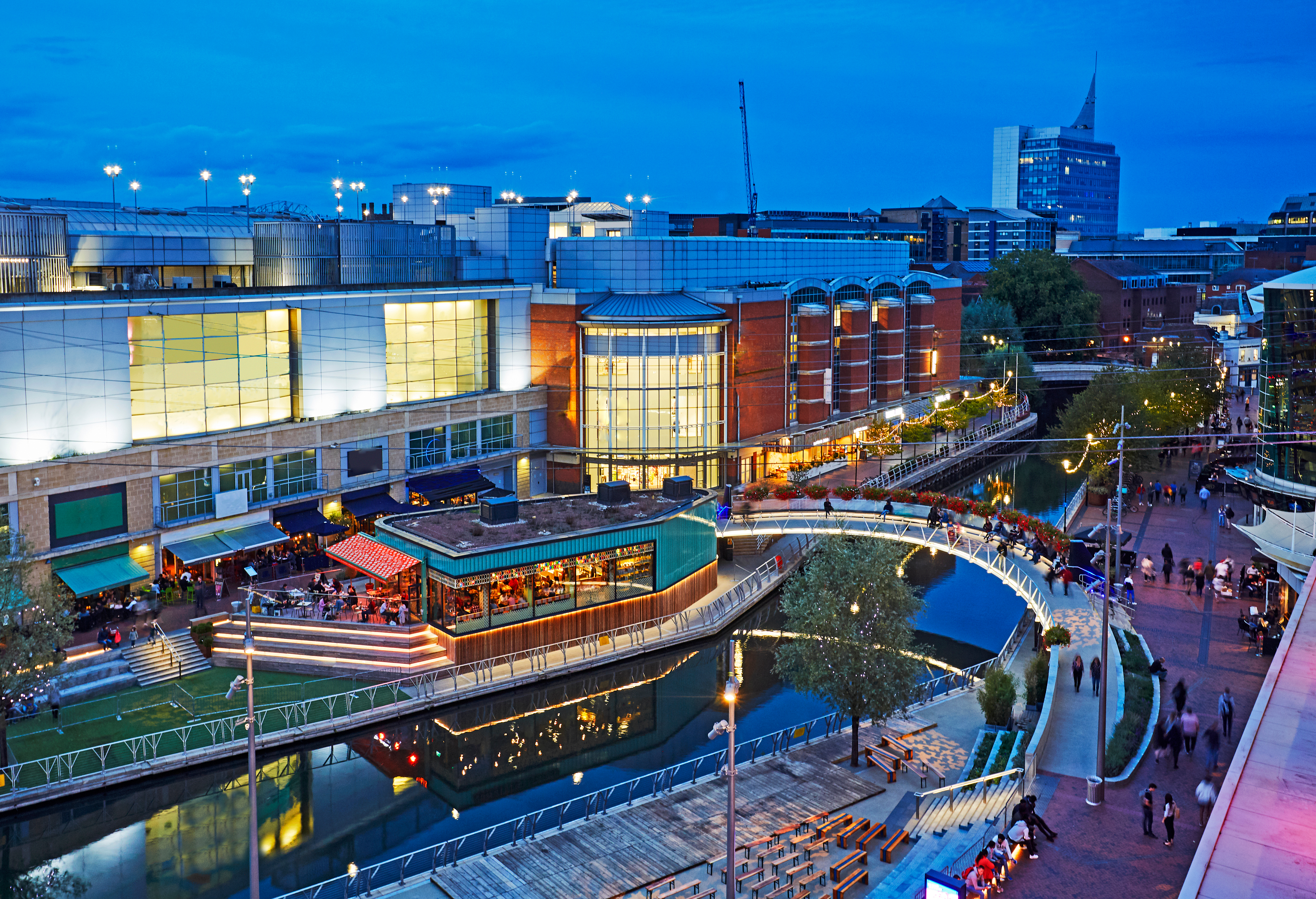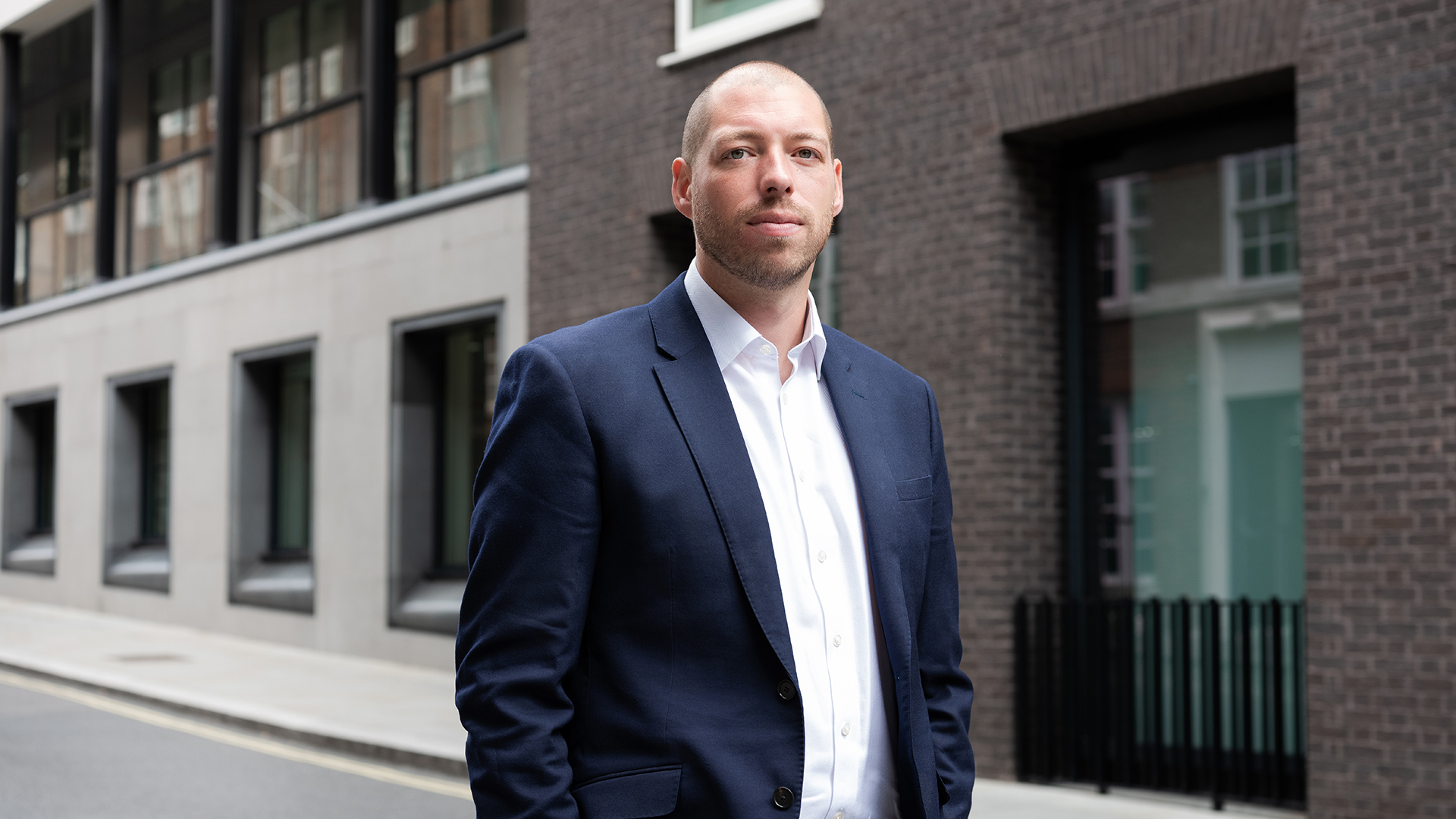
Plane arriving in Wellington, New Zealand. Photographer: NataliaCatalina, Shutterstock
One evening in 2021, my partner floated the idea of a move to New Zealand. She has citizenship by descent and her mother, who lives there, has health issues. It was becoming more difficult to advocate for her from the other side of the world, so wouldn't it be easier if we were closer?
I wasn't certain at first. Firmly committed to my career at the London office of mixed-use developer Rockwell, I had been promoted from head of planning and development to executive director in 2020, and it felt as though I had found my place.
Moving to New Zealand
Eventually we decided to put family first. We sold our house, said goodbye to friends and the rest fell into place almost immediately.
A recruiter for the construction industry offered an introduction to the new managing director of Jones Lang LaSalle (JLL) in New Zealand, Todd Lauchlan FRICS. He had recently returned from Singapore, and was set on repositioning the business for growth and expansion. Our first call culminated in an offer to become head of JLL's office in Wellington. We'd never been there but decided to give the city a go.
I spent the first two weeks in managed isolation and quarantine (MIQ) at the airport hotel in Auckland with my pregnant partner and our daughter. Then, one stormy afternoon and with the city in lockdown, we got the only flight to the capital. It was grey and miserable when we landed. The wind was howling and rain lashed along Evans Bay. Within days we were living out of two suitcases and sleeping on an airbed in a small, unfurnished rental property in the hills above the Hutt Valley. London felt a long way away.
Transferrable skills and starting from scratch
It was then that the reality of our move and the need to adapt began to dawn on me. A colleague from JLL's Auckland office reached out early on to tell me: 'All the Poms who have made successful moves to New Zealand have reinvented themselves here.' Another, a Brit who had moved some years ago, commented: 'There's no point trying to bend the model to fit what you did in the UK,' and concluded: 'Eventually I decided that if you can't beat them, join them.' I knew that I would need to fall back on the transferable skills that all chartered surveyors have. The value of broad-based property expertise cannot be understated.
However, I hadn't expected to reinvent myself. I was well-established in my field. I'd advised national governments, politicians and city leaders. I'd lectured, written and campaigned for reforms on topics from housing to inclusion. I'd led development schemes on a transformative scale. None of this was the point though; it was about making this expertise and experience fit a new market.
I've helped teams and organisations grow in the past. In many ways that expertise transfers naturally. I've also worked in roles where I managed significant commercial risk. In that respect, the process of assuming a new role, moving to a new country, buying a new house and having another baby was all quite straightforward.
The challenge of establishing a profile and network in the market felt much harder. I quickly realised how much of my success in London had relied on precisely these two things – both of which I would need to rebuild from scratch in New Zealand.

Artist's impression of new JLL office fit-out © Willis Bond

New JLL office fit-out, Wellington waterfront © Jonathan Manns
Lessons from life change
Our move has been an opportune moment for self-reflection and I've taken a lot from it. I can't claim that the lessons I've learned are comprehensive and I won't pretend they can't be improved upon, but I can venture five messages for anyone considering a similar move.
-
Embrace change: When our daughter was ten months old, we took her on holiday to Keswick. A lady we chatted to, reflecting on her own moves from London to Hong Kong and from the Lake District to Cornwall said 'We live life in chapters'. 'We grow through change,' a young cashier mentioned shortly after we arrived in Wellington. Both expressed the same wisdom. You don't have to move to the other side of the world but change and the new experiences it brings teaches us about ourselves and others. Not only is change inevitable, but it can also be hugely positive if we embrace it.
-
Be adaptive: Evolution relies on change through adaptation. 'These elaborately constructed forms,' wrote Darwin in 1859, 'so different from each other, and dependent upon each other in so complex a manner, have all been produced by laws acting around us.' He was ruminating on the origin of species, but the same is true of careers. Global property is a tangle in which everything grows in a slightly different direction. Don't be daunted by the detail. Unlike the UK, RICS is less well established in places such as Australia and New Zealand. Careers in these markets don't follow straight lines and commission-based business models dominate. It would be easy to be negative and judgemental when things are different, but that's a lazy approach that achieves nothing. You can't bend another system to fit what you find comfortable. However, you can flex to find a space that fits you.
-
Remain grounded: It might sound odd to suggest remaining grounded and positive when you've made a conscious decision to move somewhere; but big changes can be emotional rollercoasters whatever the context. Just remember that people handle transition differently. A friend who moved from the UK to New Zealand 15 years ago said they balance commitments by going home every year. Soon after we arrived in Wellington, a British expat of almost 20 years confided to me that they had spent almost every day for the first six months crying. Someone else, who has been here for 30 years, commented: 'I've never been bothered except when I want a decent pint of best bitter.' They've all had different experiences but they've done what they feel to be right and are all still here and happy.
-
Identify strengths: We are the sum of our experiences, so whatever happens we shouldn't discount them. You may be in a different country, but new technical skills can always be learned and employers don't expect you to have acquired all the local knowledge on day one. You just need to recognise that you'll need to pick it up, which in many cases means getting back on the tools. It's equally true, though, that what you might perceive as weaknesses are what others will see as strengths. You may bring experiences that add something new in terms of knowledge or approach, or simply offer a fresh way of thinking. Try to be as realistic as possible.
-
Keep going: Wherever you are in the world and whatever point you are at in your career, there will be moments when you need to make an effort to push things forward. There is nothing that cannot be achieved through hard work and enthusiasm. You are not powerless. Starting again will always require a little elbow grease but you'll have known that when you decided to go, so just get on with it. The further along you are in your career, the more effort might be needed, but the more likely it is that you will have done it all before.
After a year of change we're happily settled in our new home. We have a stronger sense than ever that we are the authors of our own story, our daughter has been joined by a son and we are more open to not knowing what might follow next.
Meanwhile, JLL's Wellington business is going from strength to strength, building a culture that attracts and retains new staff and clients, and taking market share from our competitors every day. Two months after starting, I took the role of head of strategic consultancy for New Zealand. We've since diversified and expanded our business. We now work across not only New Zealand but Australia and the wider Asia Pacific region.
We've just been named RICS Real Estate Advisory Team of the Year. Richard Branson once said, 'If somebody offers you an amazing opportunity but you are not sure you can do it, say yes – then learn how to do it later!'. I tend to think he's right.
How NZ and UK planning systems differ
The development and planning systems in the UK and New Zealand are similar yet incredibly different.
In the UK, local authorities set the rules and policies that guide development in their areas. New Zealand is similar, but it also has planning zones and permitted land uses in particular areas as directed by councils.
Meanwhile, the national policy framework in New Zealand, set by the Resource Management Act 1991, was intended to protect the environment. However, the act has been bastardised so much over the years it has come in for considerable criticism, and the government is currently rewriting it.
Development practice itself is similar in both countries, but the difference is scale. New Zealand's population is no bigger than that of a city-region the size of Greater Manchester, but its land area is closer to that of the British Isles. Consequently, the country does not have the number or size of developers that can work at volume, as happens in the UK.
Nevertheless, both countries are investing in housebuilding to try to alleviate their housing shortages. New Zealand has built more in the past five years than it has for several decades, but still has a long public housing waiting list that will take many more years to redress. Kāinga Ora Homes and Communities, an urban development agency similar to Homes England, is leading the effort to build.
As in the UK, cities in New Zealand have expanded relatively quickly in recent decades. But successive governments and council administrations have been criticised for insufficient investment in transport and water infrastructure in those cities.
The New Zealand government decided recently to increase infrastructure spending significantly to cope with the economic impact of COVID-19, although this also seems to be contributing to inflation. Specific projects, such as the City Rail Link in Auckland, are receiving investment on a case-by-case basis. The UK's City Deals target infrastructure among other outcomes. While they were emulated by Australia, the concept never got off the ground in New Zealand.
David Jones MRICS is an urban regeneration specialist who leads the city development advice practice and Wellington office of specialist consultancy Stellar Projects
RICS UK Commercial Property Conference
13 – 14 December | 8:30 – 13:45 GMT | Online
The RICS UK Commercial Property Conference returns online this year to close out 2022 and will be delivered over two consecutive half-days.
Hear from key-industry speakers giving practical advice to surveyors in tackling the issues of the ongoing cost of living crisis, rising interest rates and how to prepare for a sustainable future in the post-covid recovery. See here for further details.


